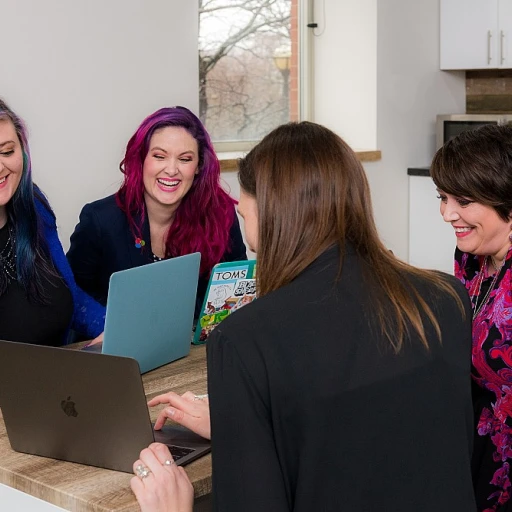
Understanding the Rise of Remote Work
Exploring the Shift to Remote Work
The transition to remote work has steadily gained momentum over the past few years, largely driven by technological advancements and a growing desire for flexibility. As companies increasingly recognize the benefits of allowing employees to work from home, the traditional office setting is being reevaluated. A key aspect contributing to the rise of remote work involves balancing responsibilities and maintaining productivity while working away from the centralized work location. Remote work is often celebrated for the freedom it grants employees, allowing them to choose from a variety of environments—be it their living room, a local café, or even a co-working space. This flexibility can lead to improved job satisfaction and better mental health, as individuals are often able to tailor their work environments to their personal needs. Additionally, reducing or eliminating commutes can significantly decrease stress and provide extra time for personal or family commitments. However, this model does not come without challenges. Employers might struggle with maintaining accountability and ensuring productivity over the course of the workday. It becomes crucial to establish clear expectations and trust between employees and management. This trust is pivotal in both securing the initial transition to working from home and ensuring its long-term success. The revolution of remote work is also driven by more than just the perks. Circumstances such as health concerns, family emergencies, or even transportation issues like a broken-down car offer "good excuses" for working from home on any given day. In this context, what might initially start as a temporary solution could become a permanent working condition. For those interested in understanding the justification of working from home, particularly as it relates to these "excuses," top reasons to justify working from home provides valuable insights. This shift in workplace structure is reshaping the future of employment, highlighting the necessity for adaptable work environments and flexible job arrangements in our modern world.Common Work from Home Excuses
The Art of Justifying Remote Work
In the realm of remote work, crafting a solid excuse for not going to the office has become somewhat of a skill. While some may genuinely need a "home day" due to health issues or a family emergency, others may find themselves in a position where an excuse is needed to simply get through the day. The key to justifying working from home is to balance honesty with necessity.
While traditional excuse work scenarios like calling in sick or facing a car trouble are still common, many employees have adapted to the new norms by fabricating creative reasons. Some argue that working from home boosts their mental health and allows them to contribute more effectively to their job. In some cases, the boss may be lenient with these justifications if the employee demonstrates enhanced productivity and responsibility.
Not all excuses need to be crafted from a situation of inconvenience. Many individuals find that they do their best work from home, which gives them the freedom and flexibility to excel without the pressures of an office environment. If you find yourself contemplating a call to work, it’s vital to understand the reasons behind your request.
Exploring a flexible work arrangement may be a helpful step forward. Embracing a flexible work-from-anywhere approach can often lead to beneficial outcomes for employees and their employers. The increase in home office setups ensures that many can maintain productivity while enjoying the flexible nature of remote work.
Ultimately, whether it’s a "good excuse" to work remotely or a necessity, it is essential to maintain transparency with your employer. Navigating this landscape requires trust and a firm understanding of how these excuses impact your work and organization.
The Impact of Work from Home Excuses on Productivity
Evaluating the Consequences of Remote Work Justifications
Moving to a remote work setup has brought numerous advantages such as flexible schedules and the comfort of working from home. However, a recurring aspect of this transition is the multitude of work-from-home excuses, some of which are perceived to affect productivity. Understanding this impact is crucial for employees and employers alike.
It is common for employees to cite reasons like "I am working from home today because of a sick day," or "I need a home day to care for a family emergency." These are indeed valid situations that can arise, and good excuses for working remotely. However, there are also instances where these justifications are overused, affecting daily operations and team dynamics.
Remote work allows employees to manage their own time, resulting in improved mental health and overall job satisfaction. However, without a strategic balance between flexibility and accountability, the work-from-home set-up may suffer from reduced effectiveness. The convenience of excuses to work remotely sometimes leads to challenges in maintaining consistent productivity levels and meeting deadlines.
Moreover, when employees frequently call work with excuses from health issues or emergencies, managers might begin to question the legitimacy of these claims. This ongoing cycle can stretch the trust between employer and employee, necessary for any team’s success. Exploring methodologies on enhancing efficiency can provide insights on addressing these concerns. Employers can counter this trend by establishing clear guidelines for remote work expectations, and employees can focus on best practices to stay accountable while benefiting from the good aspects of working from home.
In short, acknowledging the validity of remote work excuses is essential. However, maintaining a productive and trust-filled remote work environment relies heavily on finding the right balance. Managers can develop systems that encourage responsibility without sacrificing the flexibility that remote work offers, ensuring that the setup continues to be beneficial for all parties involved.
Balancing Flexibility and Accountability
Finding the Right Balance Between Flexibility and Accountability
Balancing flexibility and accountability is a cornerstone of successful remote work. Remote work allows employees to manage their work schedules around other priorities such as family obligations, health matters, or even car repairs. A flexible schedule can be particularly helpful for those managing personal commitments or dealing with circumstances like family emergencies or a sick day when one needs to call in work from home. However, it is essential that the freedom to set one's own schedule doesn't cause a lapse in meeting job responsibilities. While staying home today might be tempting, even the best excuses should not compromise productivity or professional goals. To balance this, clear communication is vital. Anytime you're working from home, ensure to inform your boss of your availability and any potential hindrances. Accountability is not just about meeting deadlines, but also about being present and reliable. Employers play a crucial role by setting realistic expectations and using performance metrics to measure output rather than time spent at a desk. Encouraging employees to self-assess their daily output can also foster a sense of ownership and responsibility. Ultimately, the goal is to create a healthy culture where employees are not just making excuses to work from home but are truly benefiting from the flexibility it provides while effectively fulfilling their job duties. Embracing this balance can lead to a more motivated and engaged remote workforce.The Role of Trust in Remote Work
The Importance of Trust in Remote Work
Trust is the cornerstone of any successful remote work arrangement. When employees work from home, they are often out of sight, which can lead to concerns about accountability and productivity. However, fostering a culture of trust can alleviate these concerns and enhance overall job satisfaction.
Employers need to trust that their team members are doing their best work, even if they are not physically present in the office. This trust is built over time and is reinforced by clear communication and consistent performance. Employees, on the other hand, need to trust that their employers will respect their work-life balance and not micromanage their day-to-day activities.
Building Trust Through Communication
Open and transparent communication is key to building trust in a remote work environment. Regular check-ins, whether through video calls or instant messaging, help maintain a connection between team members and their bosses. These interactions provide opportunities to discuss any challenges or good excuses for needing flexibility, such as a family emergency or health issues.
Moreover, setting clear expectations and providing feedback can help employees understand their roles and responsibilities better. This clarity reduces the need for excuses work scenarios and promotes a more productive work environment.
Trust and Accountability
While trust is crucial, it must be balanced with accountability. Employers should implement systems that allow them to track progress without being intrusive. This could include project management tools or regular progress reports. Such measures ensure that employees remain accountable for their tasks without feeling like they are constantly being monitored.
For employees, being accountable means delivering quality work on time and communicating any potential delays or issues promptly. This proactive approach helps maintain trust and demonstrates reliability, even when working from home.
The Role of Trust in Mental Health
Trust also plays a significant role in supporting employees' mental health. Knowing that their employer trusts them can reduce stress and anxiety, allowing employees to focus on their work rather than worrying about being judged for taking a home day or calling in sick. A supportive work environment that prioritizes trust can lead to higher job satisfaction and better mental health outcomes.
In conclusion, trust is a vital component of remote work success. By fostering a culture of trust, employers can enhance productivity, improve mental health, and create a more positive work environment for everyone involved.













